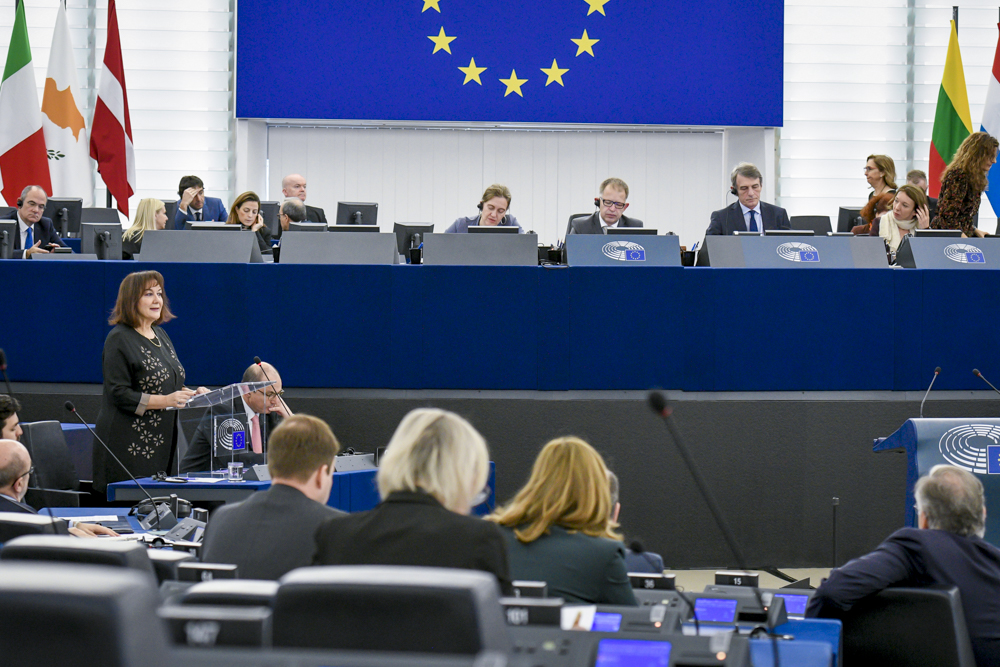Written by Clare Ferguson,

The agreement reached in the European Council meeting of 10‑11 December, which should unblock the adoption of the 2021-2027 Multiannual Financial Framework (MFF) agreed last month, means that budgetary issues are likely to be the focus of this session. (Although the agenda will only formally change when the session opens.) The relevant committees are expected to meet on Monday evening, to consider the draft MFF Regulation, the accompanying draft interinstitutional agreement on budgetary discipline, and the proposed regulation on ‘rule of law’ conditionality. The plenary would then vote on the package later that week. Parliament obtained certain improvements to the political compromise reached in July in the European Council, and is keen to see these reflected in the plans for next year’s spending. As the year ends, the 2021 budgetary procedure should thus also be a key item on the session agenda, once Parliament’s Committee on Budgets considers the Commission’s revised draft budget. (Update: The Committee on Budgets voted to recommend granting consent to the 2021-2027 MFF on 14 December).
Whatever the final decision concerning the EU’s finances for the coming years, farmers and people in rural areas need to know that the funding on which they depend will not be cut at the end of the year. Parliament is therefore set to debate and vote on transitional rules for support from the common agricultural policy (CAP), extending current EU farm policy until the new CAP framework is in place at the end of 2022. This longer transition period, based on a Parliament proposal, should ensure more certainty for farming communities and allow greater focus on environment and climate measures. In the meantime, due to the need to increase EU payment appropriations in line with updated forecasts of expenditure and other adjustments to expenditure and revenue, Parliament is also to vote on Draft Amending Budget No 10/2020 during this plenary session. The limited expenditure adjustments proposed would allow an increase in payment appropriations of €1 569.3 million for the European Agriculture Guarantee Fund and for certain decentralised agencies.
Confirming the compromise agreement reached on the MFF and the considerable funding measures already agreed to combat the coronavirus crisis, Members are also expected to vote on an additional package, REACT‑EU. This is intended to mobilise €47.5 billion, offering Member States the flexibility to use EU funds to address the challenges faced by the sectors hardest hit by the pandemic, such as health care, tourism and culture. The funding should support social cohesion and climate objectives, with a particular focus on helping young people into work.
The salience of the debate on the rule of law attests to the fact that European citizens have shown increasing irritation regarding fraudulent use of EU funding in recent years. In response, the EU is setting up a new European Public Prosecutor’s Office to provide an independent and decentralised EU office that can investigate, prosecute and bring crimes, such as fraud, corruption or cross-border VAT fraud, to judgment. However, this means that the relationship between the EPPO and the European Anti-fraud Office (OLAF) needs to be carefully codified in the rules of both organisations, based on principles of close cooperation, information exchange, complementarity and non-duplication. Members are expected to debate and vote on final adoption of the compromise text during this session.
Members are also expected to give their opinion, in a secret vote, on the nomination of Marek Opioła as the Polish member of the Court of Auditors to replace Janusz Wojciechowski, now EU Commissioner for agriculture. While Parliament’s decision is not legally binding, the Budgetary Control Committee nevertheless examines each candidate on their ability to perform their duties in complete independence and in the general interest of the EU. The publicity surrounding these hearings and the questionnaire answered by the candidates therefore make it difficult (but not impossible) for the Council to over-ride any negative opinion delivered by Parliament.
The coronavirus pandemic is thought to have exacerbated the rise of authoritarianism worldwide. It is fitting therefore that the Sakharov Prize, which draws attention to the situation of those who resist the repression of human rights and fundamental freedoms, will be awarded in a formal ceremony on Wednesday morning. This year, the prize goes to the democratic opposition in Belarus, represented by the Coordination Council for its peaceful role in opposing the falsification of the August 2020 elections.
A joint debate is planned for Members to discuss the legislation that ensures that Europeans have access to safe drinking water (particularly on tap, rather than in bottles). Parliament is then likely to proceed to the final adoption of the revised Drinking Water Directive and an associated resolution, changes that are a direct result of the European citizens’ initiative ‘Right2Water’. The updated rules address concerns about endocrine disruptors, pharmaceuticals and microplastics by introducing a watch-list mechanism, to begin within one year. However, Parliament is keen to see water quality further improved by integrating measures in policy on agriculture, transport and energy, chemicals and pollutants, and urban wastewater treatment. Another issue that stems from protecting European citizens from pollutants and chemicals, but potentially ranges much wider, is a change in the system of committees for overseeing the Commission’s implementing powers. Following repeated difficulties and controversy with authorising pesticides and genetically modified organisms, the Commission proposed changes in the procedure to encourage Member States to take on greater responsibility for decisions in such cases.
Finally, Members are expected to vote on a provisional agreement on a proposal to designate 2021 as the European Year of Rail. The move reflects the EU’s climate ambition, as rail is a highly energy-efficient transport mode. The year should help to boost passenger and goods traffic by encouraging the development of greater accessibility, cross-border rail connections, and promoting night trains.








[…] Source Article from https://epthinktank.eu/2020/12/11/european-parliament-plenary-session-december-2020/ […]